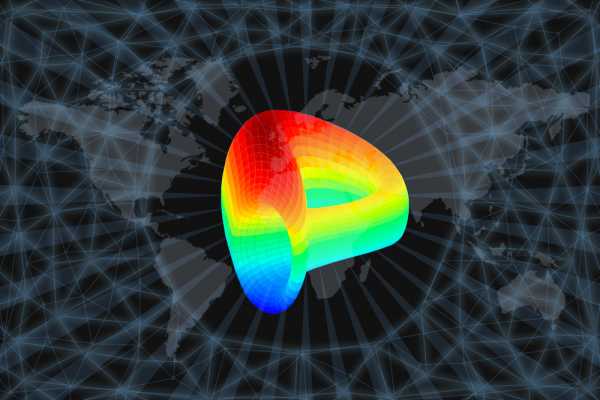Benefits of a transparent and community-governed system

DAOs are optimized through an iterative process based on its underlying tech. As we delve into the origins and examples of successful DAOs, we must also analyze the contributions of different types of governance models. As this young system breaks away from traditional vertical governance, DAOs must be constantly evaluated and optimized based on their specific circumstances. This iterative process allows for continuous improvement and adaptation to ensure the success of DAOs in the long term.
Why do DAOs need blockchain technology?
Before delving into the contribution of DAOs, it is important to examine why this governance model is only feasible when built on blockchain technology.
Overall, Blockchain provides the advantages of transparency and automation. We can track all decision-making processes using blockchain technology, including the number of voters and the weight of each vote. As a result, there can be no disagreement about the vote's outcome. In addition, we can examine the power balance among voters to ensure that voting power is distributed fairly.
Moreover, the use of smart contracts makes it impossible to manipulate the DAO. Once the vote is complete, it cannot be changed and is automatically executed. However, this automation is only possible if the smart contracts related to each possible decision are pre-coded, audited and prepared to deploy.
It is clear that horizontal governance has thrived thanks to blockchain technology, which has enabled the realization of the concept of direct democracy.

The end of the customer-business model
DAOs have the potential to transform the relationship between businesses and their communities. Communities were viewed solely as customers in traditional governance models, and while companies may have taken their feedback and needs into account, they were not given the opportunity to actively participate in company governance.
DAOs represent a shift from this model. A portion of a company's activities can be organised within a DAO. For instance, the French media outlet 20 Mint has established an editorial board that functions similarly to a DAO. At the start of the project, the team launched an NFT collection, and these NFTs grant holders access to a Discord group where upcoming topics are discussed. Each NFT gives the editorial board voting power, effectively transforming holders from mere customers into active members of the company.
The end of the classic business model
DAOs will have an impact not only on the external relationship between companies and their communities, but also on the company's internal operations. Decisions made arbitrarily from the top down are transitioning out, because every member of a DAO, whether a founder, an employee, or a community member, will be able to express their opinion on decisions based on their voting power.
However, it would be naive to believe that DAOs will immediately eliminate the vertical governance model. During the creation of a DAO, it is critical to carefully consider the calculation of voting power. Governance decentralisation must be based on a projects tokenomics, which prioritises the distribution of voting power.
The setup of a DAO necessitates an iterative approach that considers both the participants and the project's safety. This continuous evaluation and adaptation of voting models ensure that they are equitable and effectively balance the interests of all stakeholders. DAOs have the potential to create a more democratic and sustainable governance model for the future as a result of this transition and iteration.
It is important to note that in the early stages of a project's development, a top-down approach may be beneficial in establishing a solid framework for the DAO. This allows for more efficient decision-making and streamlined operations, which is especially important in the early stages of a project. However, as the DAO matures, an increasingly decentralised model that prioritises the voices and needs of all stakeholders will be required. To ensure long-term success, this gradual shift towards a more democratic and equitable governance structure must be balanced with practical considerations of project development.
A promotion of the common interest
The aforementioned DAO strengths all collaborate to advance a common interest. It is critical to recognise that DAO members may not always act altruistically or for the collective good. Rather, the DAO rules must be designed to prevent members from engaging in individualistic behaviour.
For example, in DeFi protocols, many users tend to extract as much liquidity as possible before moving on to another protocol, causing several protocols to fail during during the bull run. Curve's veTokens, on the other hand, help to avoid such behaviour and promote long-term investment. Users can increase their voting power and share of protocol revenue by locking in tokens. In general, DAOs have the potential to prevent investors from focusing solely on returns.

A DAO can therefore create a governance model in which the distinctions between core team, employees, customers, investors will be reduced because everyone will have to work for the success of the project. This mode of governance will therefore promote virtuous behaviour.
eckoDAO on Kadena: optimizing finance
The traditional banking system has long been criticized for its opaque and often unsustainable practices. With balance sheets heavily weighted in treasuries and numerous poor loans distributed due to the extended period of low-interest rates, the current banking system is struggling to maintain its footing. The lag effect of interest rate hikes, arguably will provide some positive impact on inflation Q3/Q4 2023, however the current banking contagion event could widely impact the fundamentals of finance globally.
One potential solution to these problems is a public and on-chain system, governed by its users. eckoDAO is building such a platform, eckoGOV, that aims to empower users to maintain and build on a non-discriminatory DeFi ecko-system.
Because eckoDAO is built on the Kadena blockchain, all transactions and investments are recorded on a public ledger, ensuring transparency and accountability. The smart contracts, which are the foundations of eckoDEX and eckoWALLET, are secure, audited and cannot be tampered with or altered in any way.
DAOs are undeniably beneficial for project governance, allowing for a common interest and leveraging community members' skills. They can also better align the needs of users, investors, and the founding team.
@eckoliamsan


